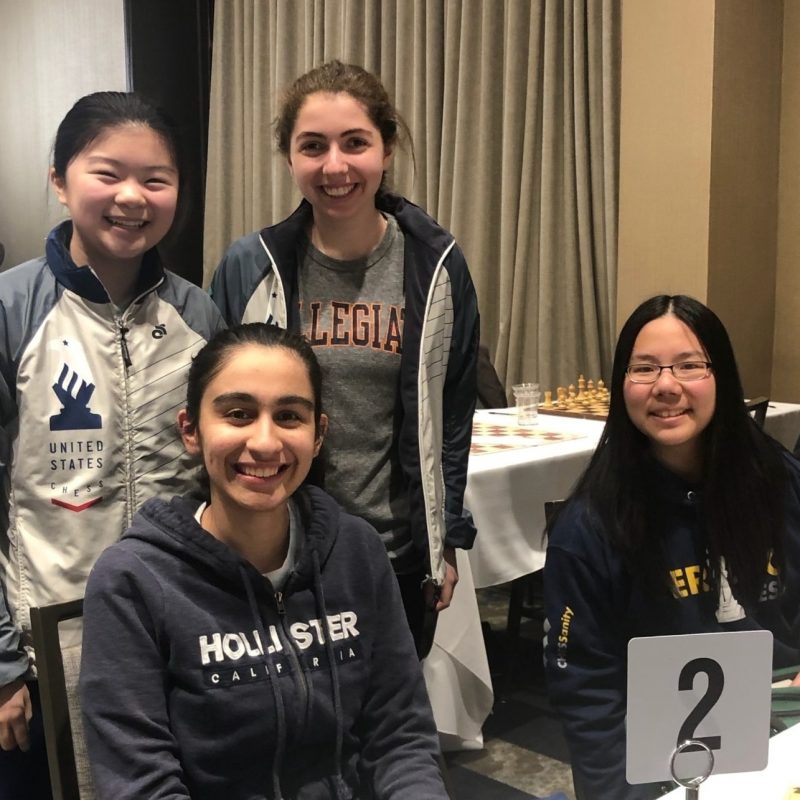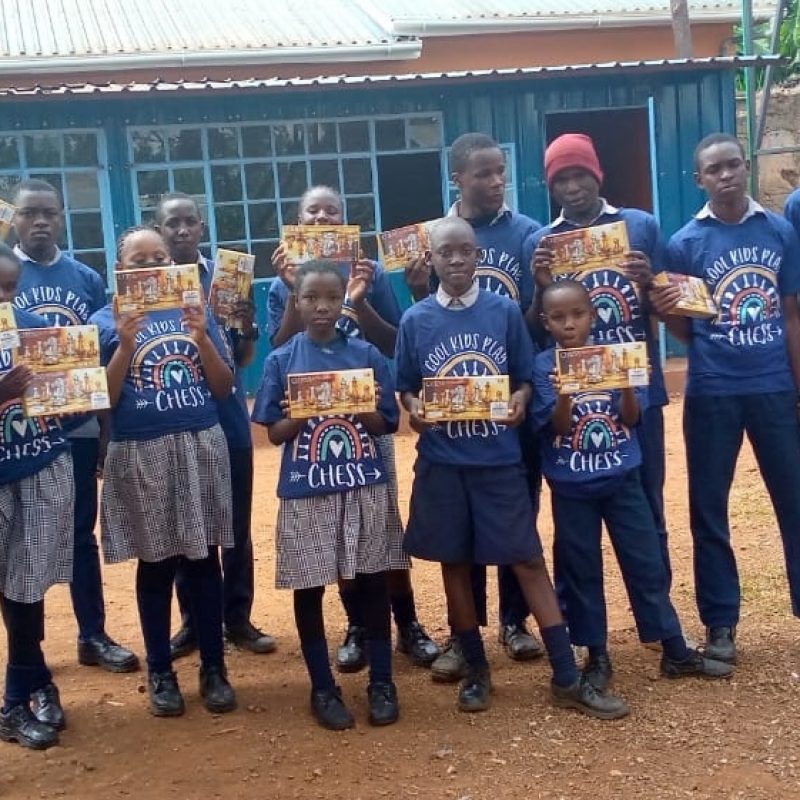Initiatives

From Ellen Wang, CTC Founder & President:
“The stark male to female ratio of 8:1 in the world of chess has never been foreign to me. Whether it was a tournament where I played as one of the very few girls battling in the field, or a youth camp where I sat in the back corner, outcast from a dozen or so boys, I have witnessed the striking and enduring gender disparity since the start of my chess career 8 years ago. While I am fortunate to have an incredible support system of my family and coaches to progress, many talented girls who would otherwise become brilliant chess players are prompted by sexist and stereotypical remarks to instead choose more “traditionally feminine” activities. The lack of camaraderie further discourages girls who are just picking up the game from continuing, resulting in a high dropout rate and subsequently a diminutive female chess community.
The Unruly Queens initiative at CTC is where I aspire to take up the challenge of gender gap in chess with my fellow players. We hope to create a nurturing space for girls to forge lifelong friendships, to inspire one another, and to break down in a joint effort any barriers that may inhibit their chess development. Moreover, we hope the girls will carry the confidence and the courage they build around chess to any situation where adversity arises because of their gender. The message that the Unruly Queens initiative would like to convey to girls is clear: Your potential has no limits, and even the sky cannot stop you!”

From Evan Park, CTC President of Global Outreach:
“When I first started teaching at the Salama-Gachie School in Nairobi, Kenya, I imagined that I would proceed as usual: sharing files, referencing books, and organizing online and off-line tournaments. After all, this is how I had taught for years.
What I quickly discovered was that this experience would be very different. The students shared one computer between them and had access to few other resources we take for granted, such as more computers/phones, fast wifi, and instructional books or DVD’s. They had to learn in a different way, which meant that I had to totally revamp my teaching plans and style, accounting for the fact that they would not be able to work independently.
What happened was astounding. Despite the fact that they had so little, they were endlessly enthusiastic and determined. In fact, I had rarely encountered such rapt and engaged students. They strived to overcome each puzzle I posed with the utmost attention. Their cooperation and teamwork inspired me.
Over time, the small improvements that they made as they solved each puzzle and played each game began to become tangible. I then faced a new hurdle: how to find puzzles that would challenge them more. Certainly, for me, this experience is one to remember, and it always pained me to have to hang up the call each time as I left for school.
Are there benefits to the students as well? According to their teacher, there certainly are. She has reported that the students developed improved skills, in addition to chess, in problem solving, logical thinking, computer knowledge, and creativity.
Chess has a special way of connecting people from across the globe, and the fact that I can make an impact on people all the way across the globe is incredible.
Truly, it is they who are connecting me, and I am honored to be part of this program.”

From inklingjourney.com:
The Power of Sports (chess included!) Journalism
Sports journalism plays a crucial role in shaping our perception of athletes, teams, and the sporting world. It is not just about informing; it’s about inspiring, connection, and humanizing the sports experience.
Capturing the Cultural Significance
Sports are a reflection of culture, and journalists have the task of interpreting the connection. They tell stories about how sports impact society, from addressing social issues to showcasing the diversity of cultures worldwide.
Female Sports Journalists Breaking Barriers
Female sports journalists are making their mark in a traditionally male-dominated field. They bring a unique perspective and cover important stories in women’s sports, empowering the next generation of athletes.
The Impact of Sports on Society
Sports journalism covers more than just games; it addresses societal issues such as race, gender, and equality. It provides a platform for athletes and advocates to speak out and make a difference.
